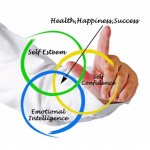 Relationship between eating disorders and self esteem may seem like an obvious one.
Relationship between eating disorders and self esteem may seem like an obvious one.
But, like most things in life the more you call into question certain basic assumptions the more you find a more accurate picture. And that is certainly true when it comes to evaluating the link between self esteem and eating disorders.
Why is that?
Because unless you can get to the root cause of any problem lasting healing will not be able to take place. For this reason it is important to discover…
The relationship between eating disorders and self esteem
When working with someone who has an eating disorder, you may be shocked to learn that the goal for many people seeking treatment is not happiness or well being.
Rather, it is nothing less than survival.
And yet, feelings of self-worth, though not overlooked, are simply not the focus.
Clearly anyone can recognize that issues of self-esteem are intricately linked with eating disorders, but one can wonder to what degree they are linked. For example, did the eating disorder lead to poor self esteem, or is the other way around?
So while a simple answer may not seem attainable in the near future, there are some interesting insights that recent study can shed some light on. For example, low self esteem:
- is a risk factor for the development of an eating disorder
- makes treatment for an eating disorder more difficult to attain a successful outcome
- is often a precursor to the onset of an eating disorder
- is a risk factor for both bulimia and anorexia in young, school age girls
Clearly self-esteem is multifaceted.
What’s more, the development and the ongoing “maintenance” of an eating disorder includes many factors, such as:
- family environment
- cultural environment
- history of dieting
- genetic predisposition
- history of abuse
- age and developmental concerns
- length of time in eating disorder
- immediate factors such as support system
- emotional factors
- spiritual factors
All of this indicates that low self esteem, on its own, is not a simple cause of an eating disorder.
However, self-esteem appears to be a primary risk factor that may contribute to the development of other risk factors for eating disorders.
For example, three separate research studies found that development of bulimia is predicted by perfectionist tendencies and body dissatisfaction only among low self-esteem women, whereas women with higher self-esteem did not have these risk factors and accordingly did not develop bulimia.
All of this points to the area of identity formation in young girls.
Recent attention on the parent-child relationship, especially as it relates to parents’ perfectionist expectations for their children and their development of autonomy, may create an environment where the child is reliant on parental expectations rather than on individual needs and desires.
In other words, seeking approval from others may have a relationship to body identity and dissatisfaction.
Yet, at the same time, some studies suggest that children growing into adolescence may turn to an eating disorder as a way of defining “self” and gaining a sense of control over their lives, even if such control is destructive in nature.
So what can be learned from these studies?
There is a link between low self esteem and eating disorders, but not necessarily a direct causal connection.
In other words, though it is clearly a risk factor for developing and maintaining an eating disorder, it is not the case that a young girl with poor self esteem will necessarily develop an eating disorder.
Holistic nutrition counseling
The Fit MD program combines healthy nutrition, physical fitness goals, and addresses any accompanying emotional problems that may be holding you back.
If you live in Westchester, NY you can find out more information about The FitMD program and nutrition counseling by clicking the link, or if you prefer give us a call at 914-721-0071 today.
You can review our staff of personal trainers in Westchester by clicking the link to review their profiles.
And if you have any questions regarding nutrition in general or keeping a food diary in particular give us a call, or leave a comment.
After all, it’s your health and well-being…